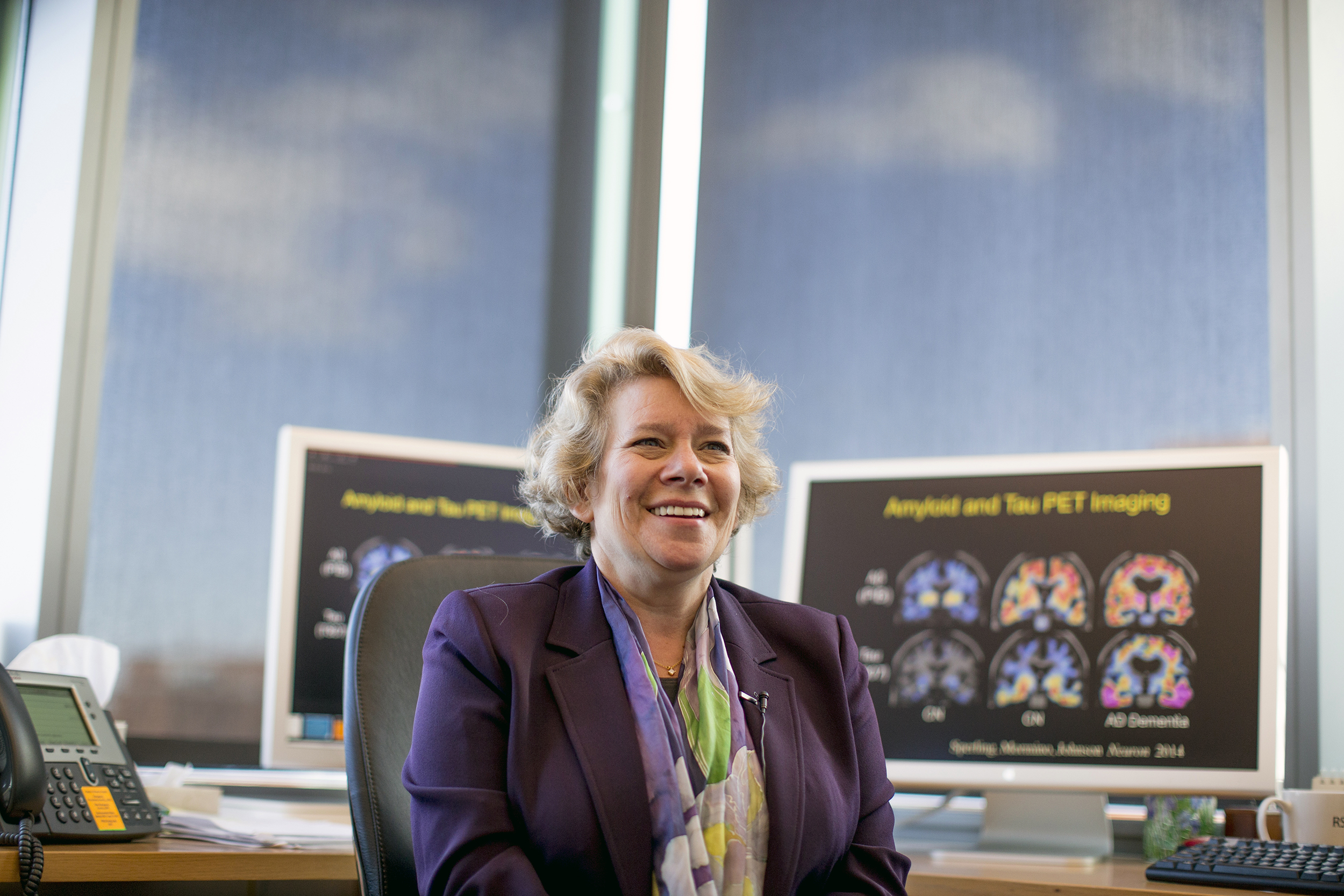
A multimillion-dollar award from the NIH will enable Harvard Medical School Professor Reisa Sperling and colleagues to launch the Alzheimer’s Clinical Trials Consortium, which will accelerate and expand the disease’s therapeutic research. Sperling is the director of the Center for Alzheimer’s Research and Treatment at Brigham and Women’s Hospital.
File photo by Rose Lincoln/Harvard Staff Photographer
Harvard professor among 3 to receive up to $70M for Alzheimer’s research
Reisa Sperling and collaborators will use NIH funding to accelerate, expand therapeutic research into disease
More like this
The National Institutes of Health (NIH) is expected to award $70 million over five years to three physician-scientists to launch the Alzheimer’s Clinical Trials Consortium (ACTC), which will create a network of 35 Alzheimer’s disease trial sites across the country with the goal of finding new ways to treat or prevent the illness.
Reisa Sperling, Harvard Medical School professor of neurology and director of the Center for Alzheimer Research and Treatment at Brigham and Women’s Hospital (BWH), will collaborate with Ronald C. Petersen at the Mayo Clinic and Paul Stephen Aisen at the Keck School of Medicine at the University of Southern California (USC) to accelerate clinical trials for Alzheimer’s and related dementias.
“We must overhaul our current recruitment strategies for clinical trials, particularly to improve the diversity of our study participants and to reach people who do not yet have symptoms of Alzheimer’s disease for inclusion in future prevention trials,” said Sperling, who is the principal investigator of the ACTC at both Harvard-affiliated BWH and Massachusetts General Hospital. “The new ACTC presents a terrific opportunity to innovate in recruitment, cognitive assessments, and neuroimaging for the next generation of Alzheimer’s trials.”
The ACTC will be led jointly by research teams from BWH and Mass General, USC, and the Mayo Clinic, with scientific input from the NIH’s National Institute on Aging, the federal leader in Alzheimer’s research. The consortium’s diverse team and improved infrastructure will ease some of the challenges involved in conducting clinical trials, including the expense of recruitment and site activation.
Several other leading researchers at BWH, including Dennis Selkoe, Gad Marshall, Dominic Walsh, and Dorene Rentz, will work on ACTC efforts to implement more sensitive biomarkers and cognitive tests in early intervention trials. The consortium will offer shared support services, enabling researchers to design better clinical trials, manage and analyze large amounts of data, and recruit participants from diverse backgrounds. The group will also share data, software, instruments, and biologic samples such as blood, tissue, and cerebrospinal fluid.
The ACTC will also help researchers engage in new collaborations to test promising therapies and prevention strategies. Prevention trials — such as the A4 Study led by Sperling and her collaborators — can require screening thousands of volunteers to identify eligible participants, which can be time- and resource-consuming. The consortium will lead efforts to find ways to intervene before the first signs and symptoms of Alzheimer’s appear, when some treatments are expected to be most effective.





